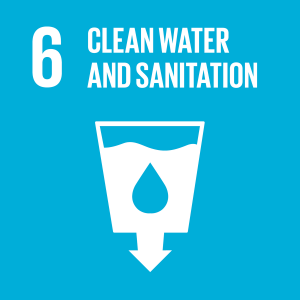Carleton University uses approximately 420,000 cubic meters of water per year, which costs about $1.1 million. The largest demands for water come from residences, athletics, power plant cooling systems, laboratories, and food preparation and serving areas. Since the baseline year of 2013-14, there has been a 27% reduction in water use on campus.
Carleton University has made significant investments in metering potable water at the building level over the years. This allows the university to assess where water is consumed and target specific areas where additional conservation opportunities exist. The Canal Building, for example, is sub-metered to provide even more specific information on how and where potable water is consumed. As the production of potable water consumes other resources such as energy, a reduction in use has positive environmental and financial impacts.
To better understand where water is consumed on campus, the sustainability office conducted a water audit of Carleton University. The data collected will allow for specific targeting of high-use areas. In addition, the sustainability office has collaborated with Housing and Conference Services to establish a new level of water conservation at Carleton. The renovation of the Russell-Grenville residence resulted in a 65% drop in water consumption, which will save Carleton’s Housing and Conference Services $44,000 a year in utility costs alone.
STRATEGIC ACTIONS:

- Achieve annual water consumption reduction (intensity).
Turn off the tap when not in use
Faucets use about 11 litres of water per minute, so make sure to turn off the tap when brushing your teeth, washing your face or hands, doing dishes, or anything else. Doing so can save over 1,500 gallons of water per person per year!
- Don’t let the water run when lathering your hands, brushing your teeth, or scrubbing dishes.
- Use just enough water to wash your hands or face when it’s time to rinse.
Report leaking faucets or fix them if found at home
A single drip from a faucet may not seem like a big deal, but a leaking faucet runs 24/7. When more than one faucet is leaking, the water wasted can add up quickly. For example, if a faucet leaks about one drip every second (a moderately slow drip), about 5 gallons of water is wasted each day. Multiply that by all the leaky faucets in a neighbourhood or city, and the water wasted can become substantial. Fortunately, dripping faucets can be fixed, and depending on where you live, there are multiple options for what you can do.
- If you rent, call your landlord immediately after you notice a leaking faucet so that it can be fixed.
- Consider learning how to fix leaky faucets yourself to gain some home-improvement skills.
- On-campus staff and residents should contact Facilities Management and Planning if they notice any leaks.
Shorten showers by one minute or more
Standard shower heads use five to seven gallons of water in just one minute. Even low-flow shower heads shoot out about 2.5 gallons of water every minute, so by cutting just one minute off your shower, you could save up to 2,555 gallons of water every year.
- Aim to take a shower in which the water is running for no longer than five minutes.
- Invest in a shower timer to keep track of how long your showers take.
Avoid consuming plastic water bottles
Bottled water can cost consumers 240 to 10,000 times more per gallon than tap water. Furthermore, the production and disposal of plastic water bottles have significant environmental and social impacts. Save yourself money and help save the planet by bringing your reusable water bottle everywhere you go.
- Carry a reusable water bottle and take advantage of the water bottle filling stations available across campus. These stations provide filtered water and make it easy to refill your reusable bottle.
- Drink only from the tap with glasses or reusable water bottles
Install low-flow shower heads and taps
By installing low-flow shower heads and taps, you can significantly reduce your water usage without sacrificing water pressure. Aerators can also be added to taps to introduce bubbles into the stream, which effectively reduces water usage without compromising on cleaning or rinsing ability. This simple upgrade can help you save thousands of gallons of water each year while still enjoying the same quality of service.
Global Water Institue
Carleton University is recognized as a leading institution in water-related research and education. The Global Water Institute, located at Carleton University, is a dynamic and diverse community of over 100 specialized researchers dedicated to addressing both domestic and global water challenges. Moreover, the Global Water Institute benefits from its close proximity to an unparalleled network of international embassies, trade commissions, federal government agencies, non-governmental organizations, and multinational headquarters.
These advantageous features position the Global Water Institute as an ideal partner for water sector stakeholders seeking support for international projects, government funding recommendations, and exceptional networking opportunities.
For more information about the Global Water Institution at Carleton University, click here.
